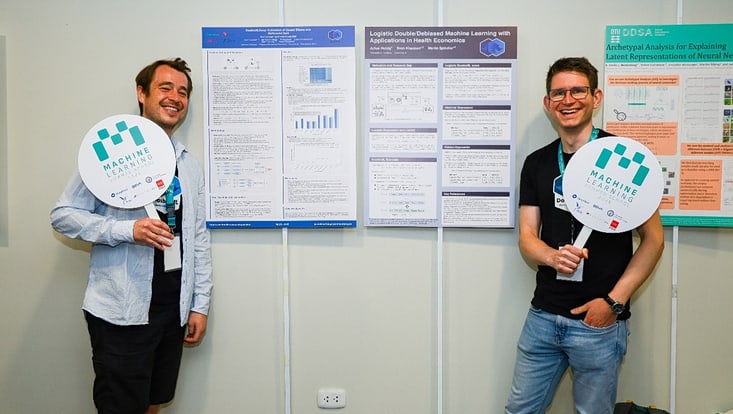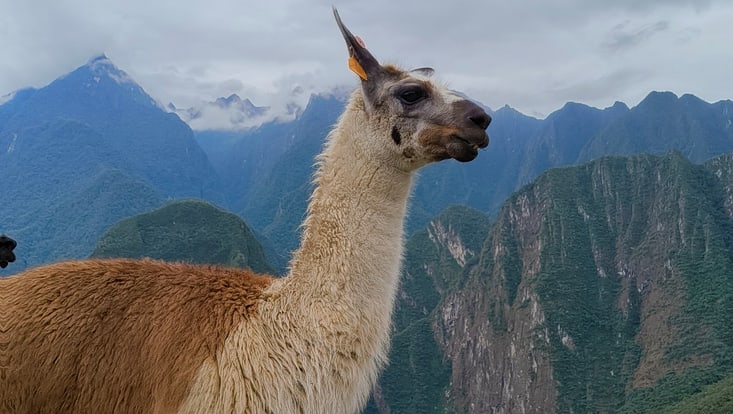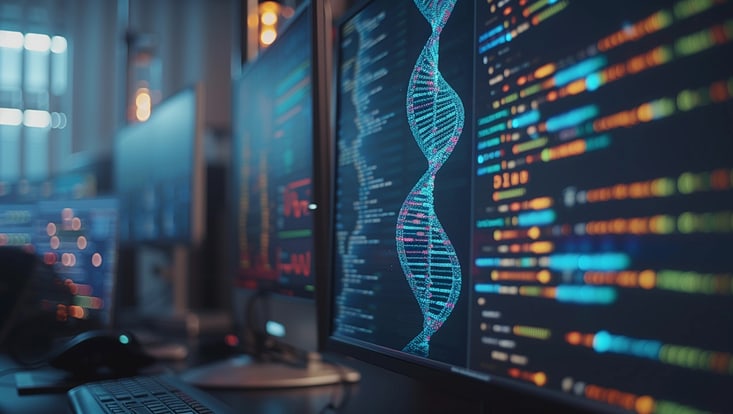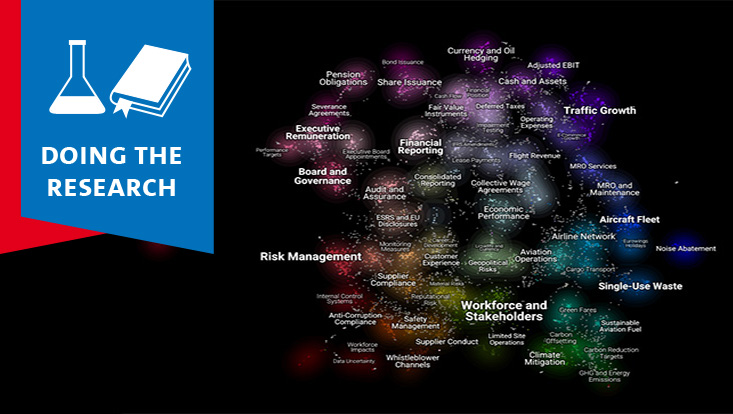Doctoral students in PeruParticipation in the Machine Learning Summer School
17 September 2025

Photo: MLSS
Julius Herzig and Jan Teichert-Kluge, research associates in Prof. Martin Spindler's Professorship of Statistics with Applications in Business Administration, took part in the renowned Machine Learning Summer School in Arequipa, Peru, from 2 to 13 August and presented their current research results.
For two weeks, Julius Herzig and Jan Teichert-Kluge had the opportunity to take part in this year's Machine Learning Summer School (MLSS) at the Universidad Católica San Pablo in Arequipa, Peru. MLSS is a renowned class that brings together leading researchers and young scientists from around the world to discuss the latest developments in machine learning.
The program offered an intensive mix of lectures and practical sessions on topics such as Bayesian Functions, Gaussian Processes and Reinforcement Learning. The presentations by internationally recognized experts from science and practice offered participants in-depth insights into current research questions and methods. “The Summer School was a fantastic experience,” says Jan Teichert-Kluge. “We were able to learn from leading researchers in the field and exchange ideas within an international group.”
The poster session was a particular highlight. Jan Teichert-Kluge was able to present a joint research project entitled “DoubleMLDeep: Estimation of Causal Effects with Multimodal Data”. Julius Herzig presented the findings of the project “Logistic Double/Debiased Machine Learning with Applications in Health Economics”, which he developed as part of the Research Training Group "Managerial and economic dimensions of health care quality" at the Hamburg Center for Health Economics.
In addition to the academic program, the stay in Arequipa also offered the opportunity to get to know Peru's impressive landscape and culture. “The combination of professional exchange and the breathtaking surroundings made this trip an unforgettable experience and deepened the contacts we made,” adds Julius Herzig.
The insights gained by the two young researchers will be incorporated into future research and teaching projects.

University of Hamburg/Teichert-Kluge


